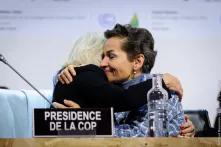© Heinrich-Böll-Stiftung e.V.
Schumannstraße 8
10117 Berlin
T +49 (30) 285 34-0
F +49 (30) 285 34-109
www.boell.de
info@boell.de
- EN
- DE
© Heinrich-Böll-Stiftung e.V.
Schumannstraße 8
10117 Berlin
T +49 (30) 285 34-0
F +49 (30) 285 34-109
www.boell.de
info@boell.de


![With Vice President Joe Biden looking on, U.S. Secretary of State John Kerry delivers remarks at the launch of the 100,000 Strong in the Americas Partnership at the U.S. Department of State in Washington, D.C., on January 17, 2014. [State Department photo/ Public Domain] Während Vizepräsident Joe Biden zuschaut, hält US-Außenminister John Kerry eine Rede zum Start der Partnerschaft "100.000 Strong in the Americas" im US-Außenministerium in Washington, D.C.](/sites/default/files/styles/3d2_small/public/2020-12/Secretary_Kerry_Delivers_Remarks_at_the_Launch_of_the_100%2C000_Strong_in_the_Americas_Partnership_%2812002705736%29.jpg.jpg?itok=-Cupq2G0)





